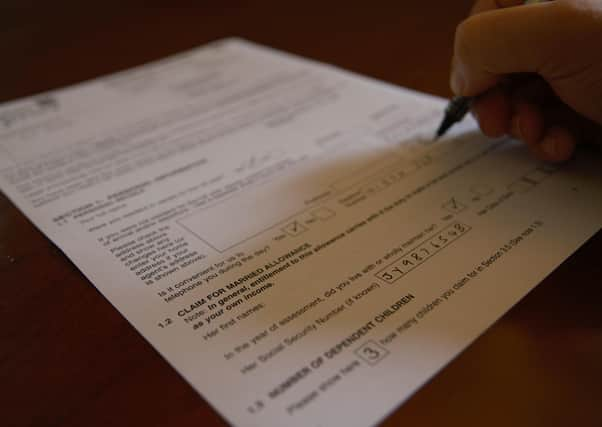Universal credit claimants struggle as DWP collects debt they didn’t know they had


StepChange Debt Charity, which commissioned the report, has revealed that 98 per cent of its clients facing such deductions cannot pay for essentials, and 59 per cent borrow to cover the shortfall.
Overpayments happen because Universal Credit awards are based on an estimate of earnings at the start of the year, which may prove inaccurate by the end of the year – especially if a recipient has been able to find some work in the interim.
Advertisement
Hide AdAdvertisement
Hide AdStepChange said many people are finding up to 25 per cent of their allowance taken by the Department for Work and Pensions (DWP) – without a check to see if this is affordable – for previous overpayments they were often unaware they had received.
The lower-rate deduction is 15 per cent, but even that leaves a typical StepChange client with a shortfall of £46 a month.
The problem is likely to get worse, as over £3bn of tax credit overpayment debt has transferred from HMRC to the DWP since 2017, but over £2bn is still to pass across.
StepChange’s report, The True Cost of Tax Credit Overpayments, suggests several practical steps that could be taken that would improve DWP practices and reduce any harm being caused.
Advertisement
Hide AdAdvertisement
Hide AdIt said the DWP should assess affordability before determining the rate of repayment, reducing the maximum deduction for tax credit overpayments from 25 per cent to 5 per cent, and introducing a new token deduction of £1 for those who cannot afford any more.
It also recommends that tax credit debts over six years old be written off, and debts that will take over 10 years to repay should be reduced to affordable levels.
Clear communication was a recurring issue for StepChange clients. Two thirds of those surveyed did not know collections were going to start before money was taken from their Universal Credit claim, and 70 per cent did not know how much money was going to be taken. One in three did not know that renegotiating the rate of repayment was an option.
StepChange also said that the DWP’s processes to proactively identify vulnerability appeared to be “woefully lacking”. It urged the DWP to use and share data effectively to help identify vulnerable people and better target communications to, and support for, them.
Advertisement
Hide AdAdvertisement
Hide AdPeter Tutton, Head of Policy at StepChange said: “The lack of focus on the consequences of benefit deductions, which the Department for Work and Pensions uses to collect tax credit overpayments, is causing real harm. Almost every respondent to our survey told us that deductions from their benefit payments had been unaffordable, which should act as a wake-up call.
“An essential first step is that the DWP needs to ensure no-one is pushed into hardship by unaffordable repayments. The maximum deduction should be reduced to 5 per cent, with flexibility for lower affordable payments and debt reduction so that no-one is pushed into hardship or left making repayments for decades. A limitation period should be applied, as it is in regulated financial services, writing off historic tax credit as HMRC has done in the past.
“These legacy debts often come as a shock to people who are unclear as to how they have ended up owing the government money. Communication must be improved so that people are properly informed, with better identification of vulnerabilities, and better tailoring of support.
“The DWP needs to act urgently to stop benefit deductions from causing avoidable harm. More broadly, we also need to see a wholesale review of the way Government collects debt, starting with the Cabinet Office’s upcoming response to the call for evidence on Government debt collection practices.”